Five Reasons to Watch "Slings & Arrows"
A retrospective of one of TV's unsung masterpieces
This guest post comes courtesy of , who writes the Tap Water Sommelier newsletter, a personal blog where he sometimes discusses obscure fiction and sometimes posts his own fiction. He also has his own website, which is in Russian.
In our tumultuous times of entertainment oversaturation and hundreds of streaming services, one needs a really good reason to watch an older series. One needs an even better reason to rewatch it, and an even better reason to rewatch it regularly. Even then, most of our attention is captured by undisputable classics; dramas like “The Wire” or “Deadwood” or, on the other side of the spectrum, comedies like “The Office” or “Arrested Development”.
There are therefore unfortunate instances of utterly brilliant shows that fall under the radar, and then perish in the maelstrom of modern media. And I really enjoy talking specifically about those. So today I will tell you about a 2003–2006 Canadian TV series that I consider one of the absolute best, and give you at least five reasons to watch it (or, if you are one of the lucky few who are familiar with it, to rewatch it).
I will tell you about “Slings & Arrows”.
Reason 1: Watch it if you love theater
The series takes place at a fictional New Burbage Theater Festival, and all the main characters inhabit not only our reality but also the reality of the theater. There is Geoffrey (Paul Gross), our main character, once a brilliant actor who had a mental breakdown playing Hamlet, and is now hired by the festival as a creative director. There is Ellen (Martha Burns), the diva, who once was Geoffrey’s Ophelia in more ways than one. There is Jack (Luke Kirby), a young and popular Hollywood actor who doesn’t seem to know the first thing about the theater but is about to play Hamlet in a coming season. There is Richard (Mark McKinney), a festival manager, whose eternal struggles to treat the theater like a business crumble upon his own misunderstanding of what he is managing. There is a gallery of actors, understudies, stagehands, and other festival employees, each quirky and funny in their own way.
And then there is Oliver (Stephen Ouimette), the director of the fated Hamlet production and the creative director of the whole festival, a man who lost his artistic vision, rests on the laurels of his past triumphs, and—spoiler!—is hit and killed by a Canada’s Best Hams delivery truck in the first episode.
That, however, does not stop him from being one of the main characters; you see, New Burbage is a Shakespeare festival, and Oliver visits Geoffrey and unsolicitly helps him in the form of a Shakespearean ghost.
Another character of the series is, of course, the theater itself, with its wide stages, narrow corridors, labyrinths of secret passages, and crawlspaces. It is not always misterious and dangerous, like in “The Phantom of the Opera,” but it certainly can be, especially if the main character is struggling to understand whether he actually sees a ghost of his old friend or if he has simply gone mad again.
The theater lives its own life in these three short seasons, and as any good actor would, it changes according to the director’s orders, switching from a large and regal hall to a small studio. What happens in the theater, though, is invariably magical.
Come to think of it, I never truly liked the theater as much as I did in this series. Never quite understood it too.
So, I guess, you should watch “Slings & Arrows” even if you don’t like the theater that much, and maybe you, just like me, will find new appreciation for it.
Reason 2: Watch it if you love Shakespeare
New Burbage is, first and foremost, a Shakespeare festival, from its Shakespearean passions off stage and on it to plushie toys in the giftshop. The first season deals with “Hamlet”. By that, I mean, it deals with the production of “Hamlet”, of course, but also with its narrative structure. Because in the first season, just like in the play, there are themes of madness and loneliness, of love and hatred, of betrayal and of returning to a forever changed home. There is even a pair of gravediggers—sorry, mortitians—who love the theater and appreciate the honor of working with its director.
The second season, in the same manner, deals with “Macbeth”, with its topics of jealousy, power, fear, and ambition, with its blood and carnage spilling from the stage into real life. The third and final season is about “King Lear”, and therefore about weakness, senility, death, and, ultimately, newly found love and respect. The series mirrors the plays, but not perfectly and not precisely. It rather seems that the plays are reflected and refracted in the complex, multi-faceted shapes of the series, finding new interpretation, new meaning, and new life.
The author’s love for the Bard shines the most in Geoffrey’s directorial remarks, when he tries to explain to the actors the motivations of their characters. I don’t think I ever understood Hamlet better, or Hertrude, or Lear. But maybe the most striking example is this scene, where he tries to explain Ophelia to a horrible actress, Claire (Sabrina Grdevich), who just doesn’t get it:
So, after thinking about it, I have to say the following: watch “Slings and Arrows” even if you don’t love or even understand Shakespeare. It might actually change your mind. The show is generous and patient, and it is probably the best explanation of why Shakespeare is still and will always be relevant to humankind.
Image property of The Movie Network
Reason 3: Watch it if you love comedy
Let’s not mince words here; the series is very funny. The humor is not really a wink-wink “Office” style but rather a more traditional comedy of errors. Another aspect of the show’s comedy, just like that of Shakespeare’s plays, is love; many Bard’s comedies are romantic in nature, and “Slings & Arrows” follows suit. The main attribute of a “comedy” in this sense of the word, of a κωμῳδία, is a happy ending. “Slings & Arrows” goes for—spoiler!—certainly a more bittersweet variation.
The star of the comedic ensemble of the cast is Darren Nichols (Don McKellar), a director of a new formation, a pretentious vapid idiot who initially hates theater with every fibre of his being. Every scene with him is pure comedic gold in the best traditions of the more conventional situational comedies. But even he gets a character arc in the end. As I already said, “Slings & Arrows” is generous and patient.
But, of course, it is not just a comedy, far from it. In fact, it is appropriately dramatic at times. At times, tearjerking, painful, scary. So, on second thought, you really don’t need to love comedies to enjoy the show; even the connoseurs of the so-called “higher arts”, lovers of tragedies, turmoils and torments will find something here.
Reason 4: Watch it if you are interested in a discussion about art and commerce
One of the main conflicts of the show, which pierces it through the whole three seasons like Hamlet’s blade does Polonius through the carpet, is a relationship between art and commerce. The New Burbage Festival is a costly affair, but theater is not particularly profitable. Moreover, since younger people are not interested in theater as such, its customer base is dying out. But can there be an uptick in interest without sacrificing the artistic component? A question most relevant to our times, or perhaps to any times throughout history.
This conflict is personified in a constant struggle between Geoffrey and Richard, the best frenemy couple in the series. Richard is not a bad guy; he is just an incredibly boring guy with no understanding of the place he works in. Every attempt he makes to turn things around invariably backfires, leaving Geoffrey to pick up the pieces. On the other hand, Geoffrey, a true artist, creates his best work in confined conditions and under immense pressure. And, let’s not forget, there is no art without money in the first place, at least not theater art.
Even if you do not think that often about this juxtaposition, it certainly affects your life, even as we speak. Perhaps you saw a Hollywood movie recently, or wondered where your favorite show disappeared from a streaming service of your choice, or even are tired of reading yet another listicle instead of an in-depth analysis in your favorite Substack—all of these are the results of the eternal art-commerce balancing act. So, even if you’re not particularly interested in this question, you should give the show a watch. Maybe it will allow you to understand other things more clearly.
Reason 5: Watch it if you’d like to see life imitating art imitating life
Many good shows do that, but in “Slings & Arrows” there is an additional level of interplay between fiction and reality, and that one is built into the structure of the show. In addition to Geoffrey’s and the rest of the theater company’s interactions with Shakespearean plots and motifs, there is a level of our reality, the reality-outside-of-the-TV-set. And here, too, there are parallels.
Take, for example, Richard, the financial manager, and Anna (Susan Coyne), the theater administrator. They basically run the whole madhouse, especially Anna, since Richard very quickly joins it. But in the real world, Mark McKinney and Susan Coyne also run the whole madhouse, being the show’s writers and creators.
Take, for example, Kate (Rachel McAdams), a brilliant understudy who, after an incident involving a chameleon, a tall stage, a broken foot, and (allegedly) a concerned ghost, gets to play Ophelia, falls in love with the Holywood heartthrob Jack, who plays Hamlet, and moves to California to pursue stardom. And in the real world, Rachel McAdams, a year after playing Kate, gets a role in “Mean Girls”, and the rest is history.
Or, on a more somber note, take Charles (William Hutt), an ailing retired actor whom Geoffrey convinces to take up the mantle of his King Lear in the third season. There are already parallels between Charles and Lear, with weakness, old age, bouts of dementia, and a deadly disease.
Unfortunately, William Hutt’s real life here too followed the destinies of Charles and Lear, and “Slings & Arrows” remained his last masterpiece.
“Slings & Arrows” ran for three seasons, eighteen episodes in total, won a bunch of awards, and, unfortunately, is sinking into obscurity. But I still believe that this is among the best TV shows ever made, setting the bar sky-high. Even if you don’t love neither theater nor Shakespeare nor comedies, even if you don’t care about the relationship between art and commerce, even if you don’t find it fascinating when life imitates art, you should still give it a watch.
First of all, you will still enjoy it; it is effortlessly charismatic, just like its protagonist, and will pull even the harshest critic to its side. And second, think of it as preserving true art—a noble and selfless, but not too taxing gesture. And then maybe you will meet someone who does love theater, Shakespeare, and comedies, and then you will pass it on, and it will live forever, as all good art should.
While it can be rather challenging to find “Slings & Arrows” on streaming or VOD services—their programs hop around more than little plastic figurines in a Whack-a-mole game—especially if you’re outside of USA, there is another option to watch the whole show right now. A YouTube channel has published its 4K AI-remastered version. As always with YouTube, there is no telling how long this link will survive, so I recommend using this opportunity and binge-watching it.
I promise, you won’t regret it.
But what do you think?Have you seen Slings and Arrows? If so, then what do you think of its depiction of the theater? Can you think of other older watch-worthy series that are underrated or have become hard to find in this day and age? Please,
If you like this post, please consider sharing, forwarding, crossposting it or making a note about it to help it gain more views!

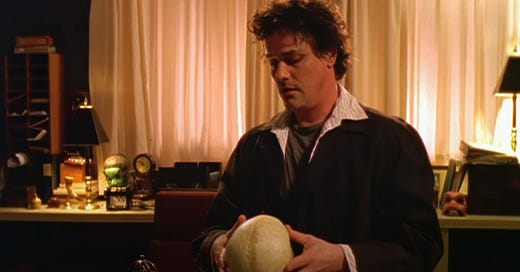



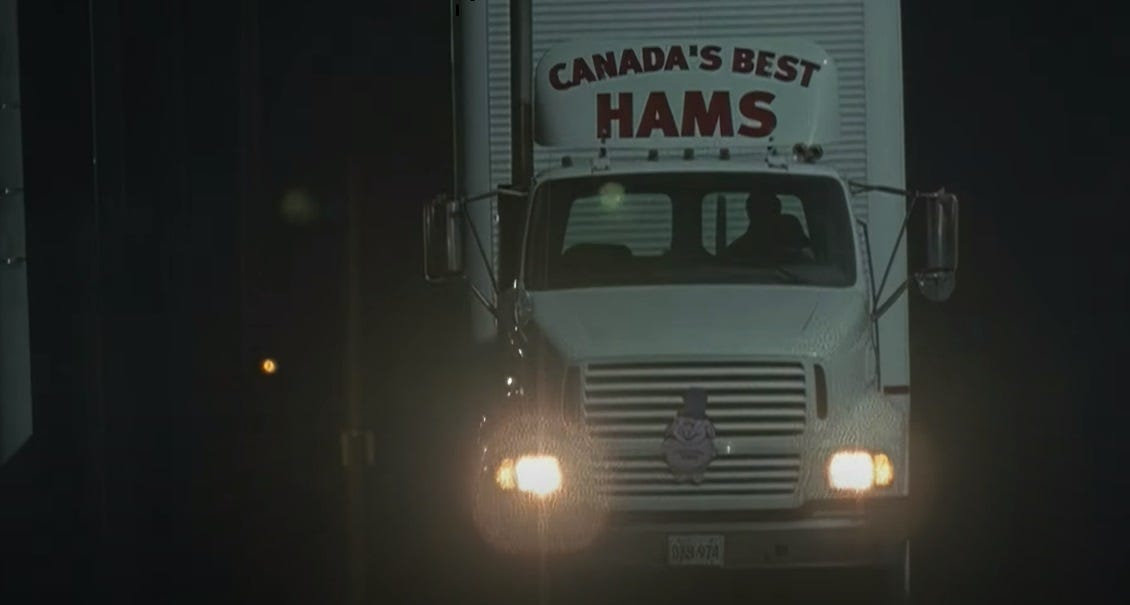
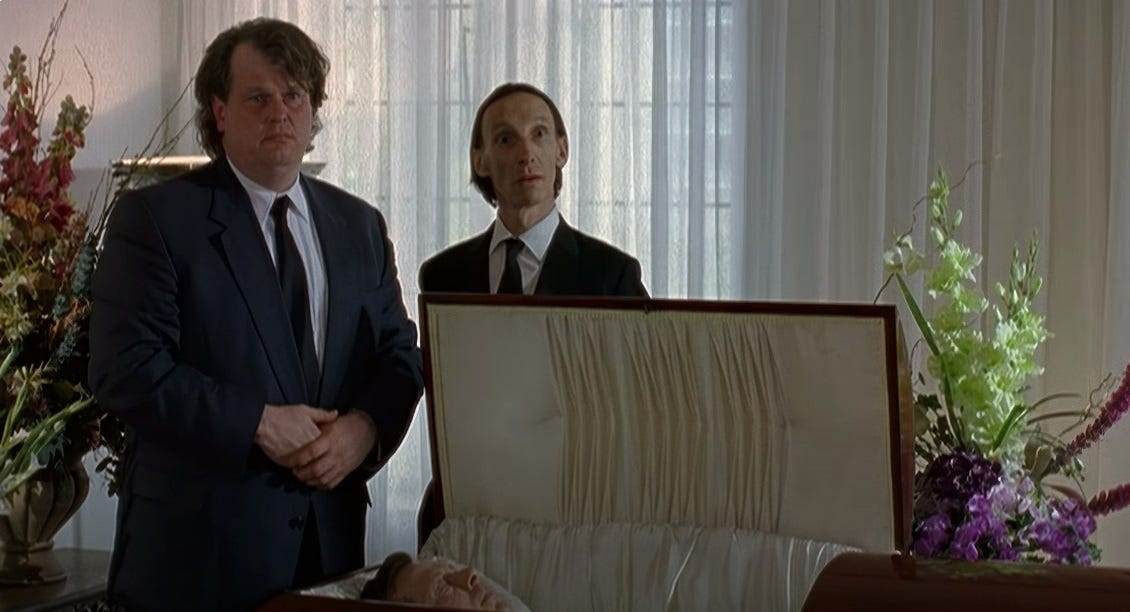
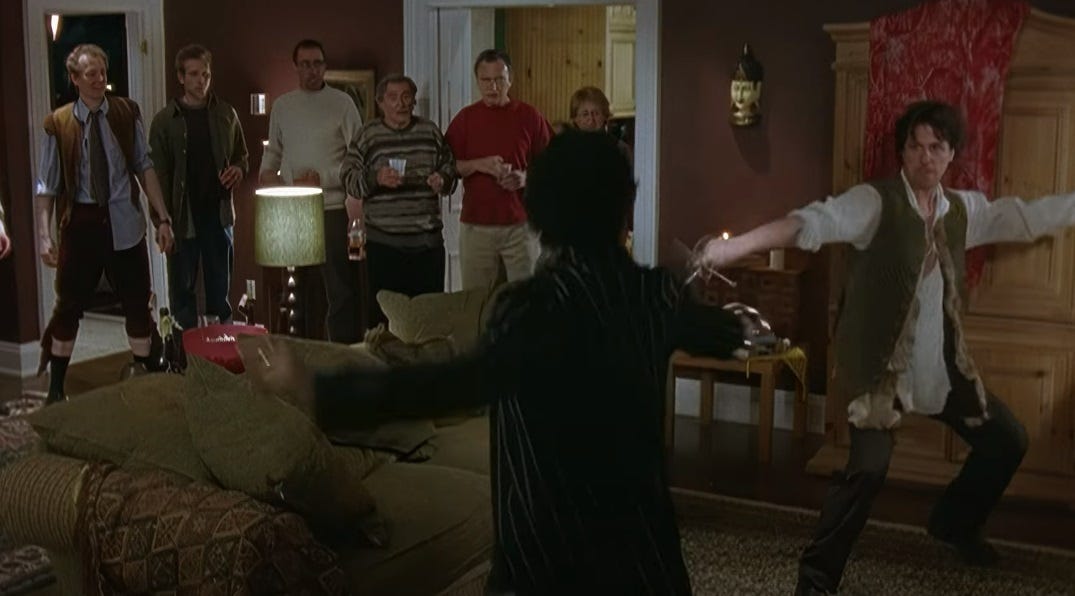
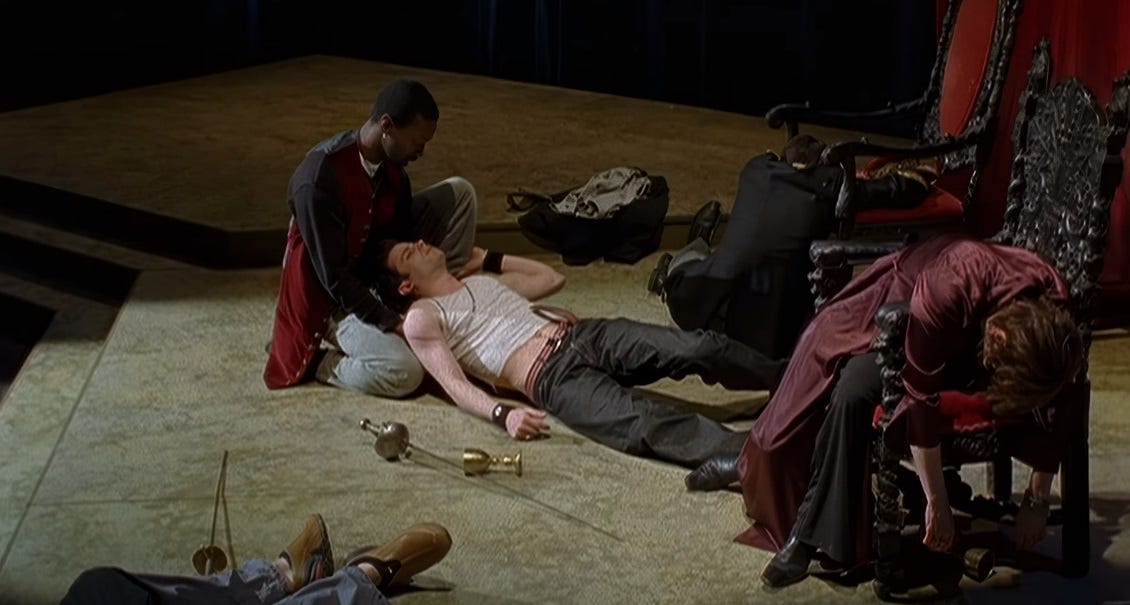

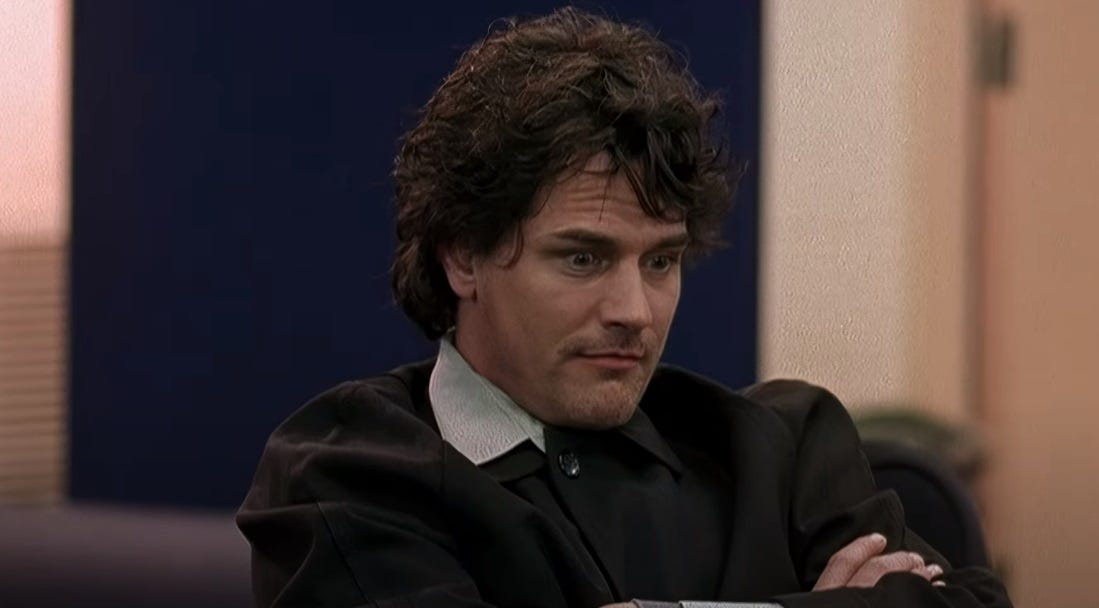

It's funny that you mention this series. I actually had an idea for something similar a few years ago and I've never heard of this show. Also, it's Canadian like me which is additionally fun. I may have to check it out.